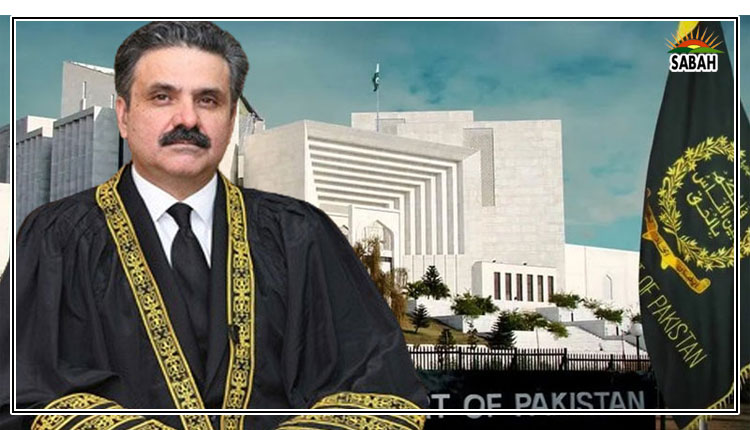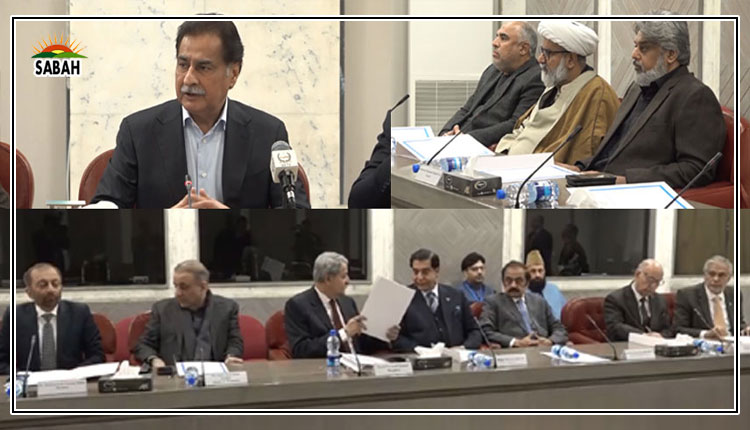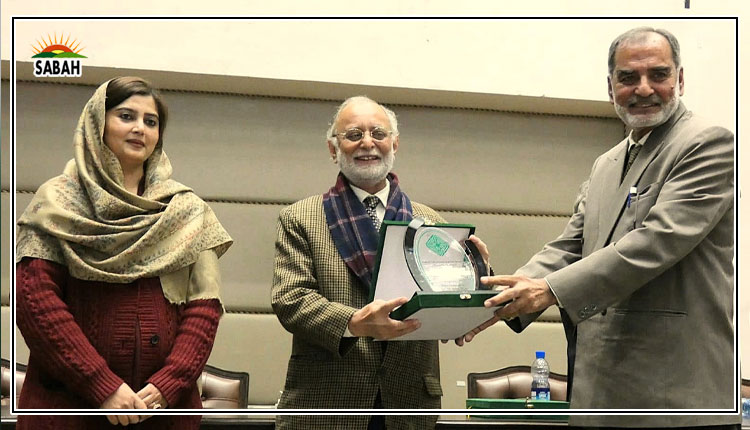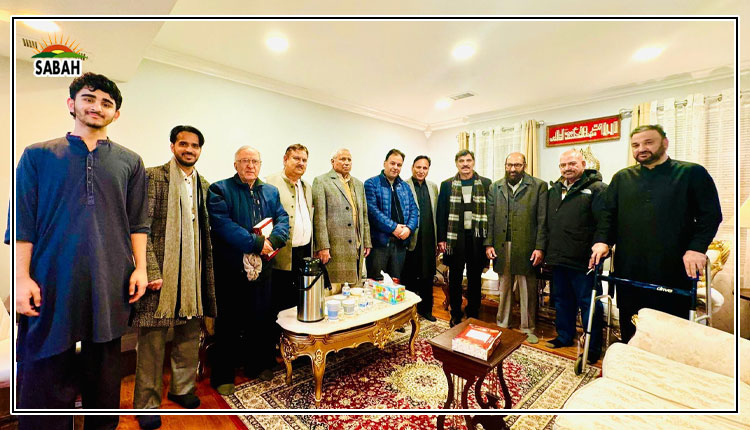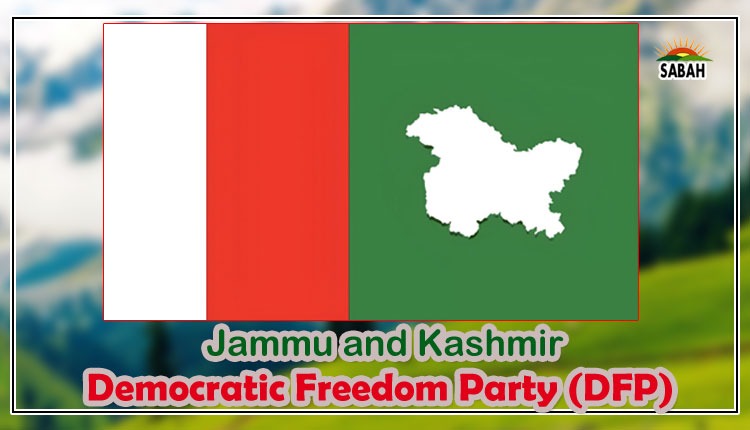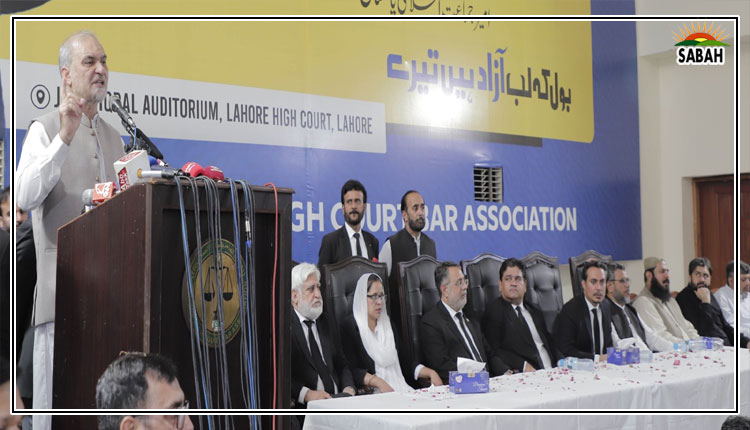Hafiz Naeemur Rehman remarks on the irony of political parties operating as family enterprises while championing democracy
LAHORE, June 27 (SABAH): Jamaat-e-Islami Emir Hafiz Naeem ur Rehman remarked on the irony of political parties operating as family enterprises while championing democracy.
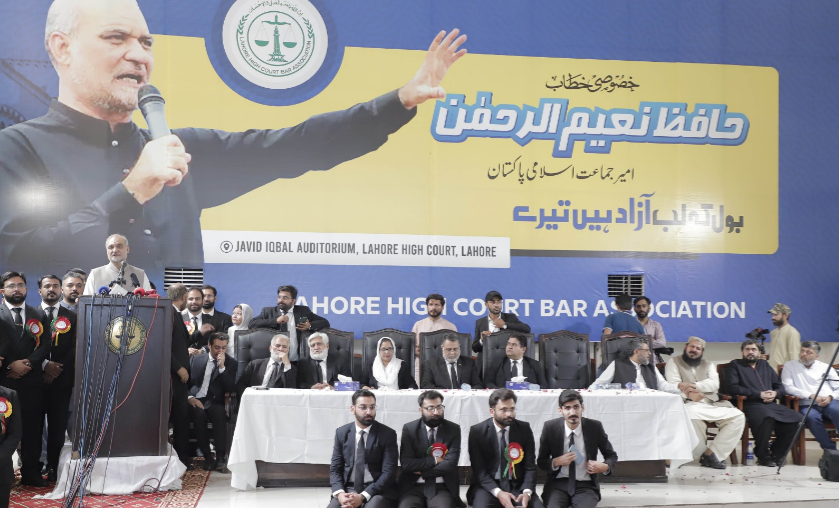
Addressing lawyers at the invitation of the Lahore High Court Bar Association in Lahore High Court’s Dr. Javed Iqbal auditorium on Thursday, he emphasized the importance of intra-party democracy, local government empowerment, the restoration of student and trade unions, and electoral reforms to strengthen democracy in Pakistan. Bar president Asad Manzoor Butt and secretary Barrister Qadir Buksh Chahal welcomed him and delivered opening speeches.
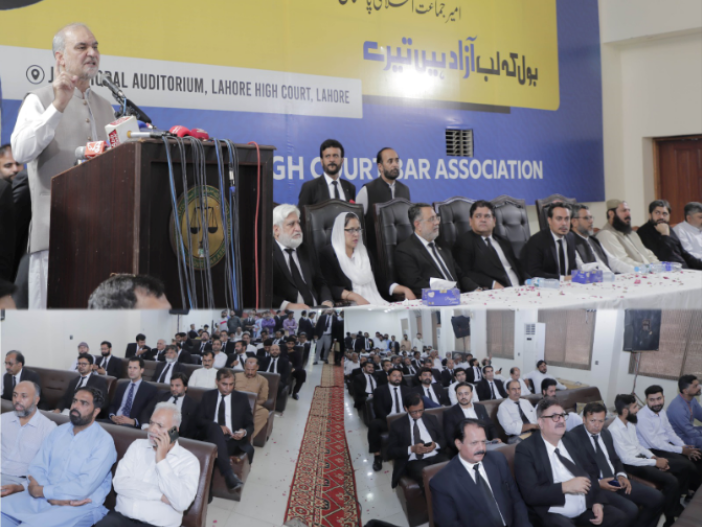
Rehman noted the shared value of regular elections between lawyers’ organizations and Jamaat-e-Islami (JI), inviting them to join the JI in its struggle for the supremacy of law and rights of the people. He said the ruling parties (PML-N, PPP, and MQM) have nothing to do with democracy. He issued a stern warning to the ruling elite to address public concerns or face the people’s wrath. He asserted that this time, the people would not allow the rulers to escape abroad.
He warned that if public grievances were not promptly addressed, Pakistan could face a crisis similar to Kenya’s. He said the ruling elite was exploiting the nation’s resources and depriving the public of basic facilities like education, employment, and healthcare. He criticized the government for imposing heavy taxes on the poor at the behest of the IMF and highlighted the social insecurity driving the youth to flee the country. He demanded that the ruling elite make sacrifices and prioritize public welfare over personal gain, stressing that the people are asserting their rights, not seeking charity.
The JI chief also called for the inclusion of feudal lords in the tax net and proposed land reforms. He underscored the potential of Pakistan’s IT sector, criticizing the government for neglecting it. He mentioned Jamaat-e-Islami’s Bano Qabil Program aimed at fostering IT expertise. Advocating for judicial reforms, he highlighted the backlog of cases in the judiciary and the common man’s struggle for justice, calling for merit-based appointments of judges in the top judiciary.
He stated that the country’s problems require solutions based on the results declared on Form 45. He claimed that those in assemblies came to power through Form 47 and electoral fraud, lacking legitimacy to decide the nation’s future. He demanded a judicial commission to investigate electoral rigging.
Rehman rejected the government’s decision to launch Operation Azm-e-Ishtekam, emphasizing that the people of Pakistan, especially in Khyber Pakhtunkhwa and Balochistan, can no longer afford military operations. He argued that the country needs political stability rather than military interventions, highlighting the failure of past operations over seven decades. He pointed out that the region is suffering due to the United States’ so-called war on terror for its interests and called for Pakistan and its allies, particularly Afghanistan, Iran, and China, to establish regional peace through dialogue.
He underscored Jamaat-e-Islami’s commitment to mobilizing against perceived injustices and economic mismanagement, signaling its intent to challenge the status quo through peaceful means. He expressed regret on the silence of the rulers of the Muslim world over Israel’s crime against humanity in Palestine. He said the JI was standing with the people of Kashmir and Palestine.






